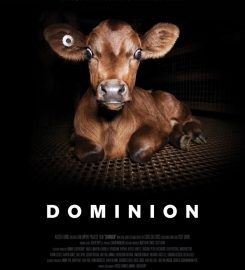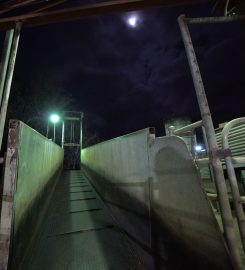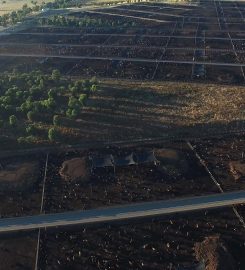Dominion
Exposing the dark underbelly of modern animal agriculture through drones, hidden & handheld cameras, the feature-length film explores the morality and validity of our dominion over the animal kingdom.
Documentary Exposing Animal Agriculture
Watch online:
https://www.dominionmovement.com/
Dominion uses drones, hidden and handheld cameras to expose the dark underbelly of modern animal agriculture, questioning the morality and validity of humankind’s dominion over the animal kingdom. While mainly focusing on animals used for food, it also explores other ways animals are exploited and abused by humans, including clothing, entertainment and research.

Narrated by Joaquin Phoenix, Rooney Mara, Sia, Sadie Sink and Kat Von D, and co-produced by Earthlings creator Shaun Monson. Filmed in Australia, with a global message.
Note: The final version of the film is 120 minutes. Due to a glitch with Vimeo, some users may have downloaded the older version (125 minutes) – we recommend re-downloading for the final version.
———-
Additional subtitles coming soon:
French, Spanish, Italian, Japanese, Korean, Russian, Swedish, Norwegian, Bosnian, Danish, Macedonian, Czech, Slovak.
———-
Completed subtitles:
*German: Translated by Pia Frische (Organiser – Anonymous for the Voiceless)
*Portuguese: Translated by Bernardo Feitosa (Frente de Ações pela Libertação Animal (FALA))
*Romanian: Translated by Cristina Cojocea (F.R.E.E. / Vegan in Romania)
*Chinese (Simplified): Translated by Grace Han (Towards A Compassionate Nation (TACN))
*Polish: Translated by Bartosz Witański (Poland for Animals)
*Dutch: Translated by Helena Kuijsten
*Bosnian: Translated by Jasmina Redzepagic, FB@AwareBalkans, and FB@Vegan.bih: V.B. Borjen, Selma Puzic, Vedran Pavlovic, Aida Gavric, Rijad Memic, Alija Osmic and Lejla Sadinlija.
*Spanish (Spain): Translated by Aula Animal
*Spanish (Latin America): Translated by Jacqueline Guzmán and Nicolás Fassi
‘Dominion’ is the feature-length documentary sequel to 2014’s Lucent.

While Lucent focused mostly on the Australian pig farming industry, Dominion will have a much broader scope as a comprehensive account of the numerous ways animals are used and abused in Australia. By exploring six primary facets of our interaction with animals – Companion Animals, Wildlife, Scientific Research, Entertainment, Clothing and Food – the film will question the morality and validity of our dominion over the animal kingdom.
Drawing heavily from the Aussie Farms Repository so as to contain the most recent, highest-quality footage from across the country, Dominion will also make use of emerging technologies, such as aerial drones, to capture new perspectives and examine the wider context of animal exploitation upon our landscape and within our society.
Dominion was announced in October 2015 with a crowdfunding campaign which raised over $19000, and in December 2015 received a grant from animal protection institute Voiceless. A further crowdfunding campaign finished in January 2018.
Duration: 120 minutes. Rating: MA15+.
Q&A with Chris Delforce, writer & director of DOMINION
The Bible mentions “dominion” over animals, and many Christians believe that humankind was given dominion over animals by god. Is that where the title comes from?
In a way yes, but I’m more interested in how this concept has permeated almost every aspect of our modern societies – in both religious and secular spheres – shaping our general attitude towards animals and, more broadly, those beings we consider to be “inferior” to ourselves. The religious origin will not be focused on by the film.

What does “dominion” mean to you?
“Dominion” to me is the idea of one group or entity exercising control, power or authority over another, under the belief that they have the right to do so. Often this belief seems to stem from the perception of self-superiority and that “might equals right”.
Through this film I challenge both the notion that animals are inferior, and that we as humans have the right to use and treat them as we please for our own ends – and I briefly examine how this superiority complex has and continues to complement some of humanity’s darkest ideologies, asking viewers to consider the similarities between racism, sexism and speciesism.
Is there any relationship between your film and Matthew Scully’s book Dominion?
At the time of deciding on the name for this film, I wasn’t aware of Matthew Scully’s book – though I’ve recently ordered a copy. No doubt there’ll be some overlap in the messaging and topics covered, but beyond that there’s no relationship between our projects.
What was your motivation behind making Dominion?
Industries that profit from the exploitation and abuse of animals hide behind a wall of secrecy – they know that if consumers were to see for themselves what actually occurs in the production of meat, dairy, eggs, leather, etc, they’d stop being consumers and those industries would quickly cease to exist.
In my 7 years as an animal activist I’ve worked to tear down that wall, to force transparency on these truly horrific systems.
The film Earthlings was a huge inspiration to me and I’ve seen the enormous effect it’s had around the world – but too often I hear the excuse that it “doesn’t happen in Australia” or that its footage is now too old. So I wanted to make something new, something to hit back at that myth of Australia being “kind” to the animals it so brutally uses and disposes of, while also making it clear that these practices and attitudes are standard across the globe and represent a much larger problem.
What are the challenges and benefits of using high-tech drone and undercover footage in making a film?
Drones offer a whole new perspective of these industries – for the first time we’re able to truly appreciate their terrifying scale and the way in which the traditional “farm” has been replaced by these massive identical rows of factories. We can cut from focusing on an individual animal with his or her own personality, to a huge wide shot of a feedlot or saleyard where thousands of these individuals are packed together as mere units of production, their individual identities lost or indistinguishable.
They can be incredibly stressful to fly though – especially when you have to send them 5km out from the shore and they make it back with only a couple percentage remaining in the battery, or when for whatever reason they decide to land near the parking lot of a slaughterhouse. Undercover footage, and footage from covert cameras placed inside slaughterhouses or farms, allow us to see what the workers get up to when they think they’re safe from scrutiny… from mocking and disrespect, to kicking, beating or throwing the animals around.
This comes at great personal risk to the people getting the footage though, and unfortunately tends to be a much lower quality image than that from the drone or handheld cameras.
Your first film Lucent is about the underbelly of pig farming in Australia. How does Dominion connect to Lucent?
Dominion will begin with an overview of pig farming – essentially a compressed version of Lucent but with newer and much better/clearer footage. For example, since Lucent‘s release, a large volume of new footage has emerged of the gas chambers used in pig slaughterhouses.
Dominion will then move on to give a similar treatment to the other animals regularly used and abused in Australia.
What are the differences between the way animals are used in the Australian food system versus the U.S. system?
There are far more similarities than differences between the Australian and U.S. systems – the main difference is the scale. The U.S. has a much larger population than Australia and therefore breeds and kills much larger numbers of animals. Ultimately, both systems involve the brutal treatment and slaughter of thinking, feeling individuals who don’t want to die.
And are there differences in the secrecy, the difficulty of gaining access to farms, and what the public believes is and isn’t happening?
While I can’t speak from personal experience about the difficulties activists face in the U.S., it is clear as an Australian that our animal agriculture sector strongly envies the ag-gag laws and Animal Enterprise Terrorism Act successfully introduced abroad, and every so often we see a new attempt to replicate or at least borrow elements from such legislation.
Being more sparsely populated, Australian animal farmers are able to “hide away” in more remote areas, further from the eyes and minds of their consumers. Where cities have developed around older farms, many have been forced to close or relocate.
The U.S. industries still largely manage to find secrecy but I would say at an ever-dwindling rate.
A huge portion of the public in both Australia and the U.S. is still unaware of many aspects of animal farming – they don’t know, for example, that cows need to give birth in order to produce milk, and that their calves, if male, are sent the slaughterhouse at just a few days of age… or that male chicks in the egg layer industry are minced up alive or gassed on their first day of life. They don’t consider what even “free range”, “organic” animals experience at the slaughterhouse alongside their factory-farmed counterparts.
It’s all hidden from them exceptionally well… but slowly, slowly that is changing, and I hope Dominion will give that a solid nudge forward.
What do you hope the audience takes away from the film?
The most important thing I want viewers to realise is that these are individual, sentient beings – they think, they feel, they hurt, they suffer. The pigs dying horrifically in gas chambers are no different to the dogs and cats we keep as our beloved companions. They don’t want to die and it is within every viewer’s power to make it stop… unlike other prevalent social justice issues, we’re not trying to persuade a backwards government to do the right thing – this is entirely up to us as consumers. It’s in our hands and it’s our responsibility.
Is there graphic footage in the film showing violence toward animals?
Yes, there is a lot, as unfortunately this is the reality of animal agriculture.
Do you feel it is “shocking” to depict standard farming practices?
While there’s very little that shocks me personally anymore, I regularly see people reacting with complete disgust and disbelief when faced with the standard reality of animal farming, whether that takes the form of comments on social media, or their faces and subsequent conversations with outreachers when they see the videos being shown in the streets (ala Anonymous for the Voiceless).
Taking away that blindfold that people have grown up with, that they’ve had reinforced over and over through all aspects of their lives, and most people are truly (and rightly) shocked.
What surprised you during the making of the film? Is there an industry practice you found particularly egregious?
Most of the time we have a fair expectation of what we’d find – but expectations don’t always prepare for reality. Capturing the practice of thousands and thousands of live male chicks being macerated (tossed into an industrial-sized blender) because the egg industry considers them useless, or male calves in the dairy industry being taken away from their mothers who desperately chase after the trailers, again because the males are thought of as “waste products”… these are things we’ve always known about but it’s something else to actually see it and capture it on camera.
How is the film not mere “vegan propaganda” and how is it different from other films in the animal rights genre?
The film aims to present the facts about the ways animals are used – facts that can be verified through industry reports, the industry’s own promotional videos, and their acknowledgement after footage of their facilities is released, saying things like “everything on the video was done according to the code”, and “this is a meatworks not a 5 star animal resort”.
These are practices and systems that consumers are told to be proud of, to revere as part of our national identity, yet those consumers are only ever presented with happy cartoon imagery or meaningless feel-good labels like “high welfare” and “free range” – propaganda on a scale so massive it’s become embedded in our collective subconscious to the point where people actually make fun of, or heatedly argue with, those who are advocating against animal cruelty. It’s seen as “weak” or “unmanly” to care about animals or indeed, those who lack our advantages or privileges.
Dominion is about levelling the playing field by showing consumers of animal products what they’re actually paying for – giving them the chance to make informed decisions and hopefully, encouraging a more compassionate and critically-thinking society where misleading advertising is no longer taken at face value.
Can you tell us about Aussie Farms and the work you do with the organization?
At its core, Aussie Farms is about freedom of information. We believe that truth and openness are our greatest asset in the fight against commercialised animal abuse – so we research, investigate, document, and publish evidence for the world to see. In our recently launched ‘Repository’ website, we’ve built the world’s largest database of photos, footage, documents, campaign materials, and facilities (e.g. farms and slaughterhouses) relating to animal exploitation/abuse, open for contribution by any Australian activist.
Our aim is to force total transparency on industries that heavily depend on secrecy and deception, and to support and empower individual activists and organisations in their efforts to make our world a better place.
You were raided by police in what became your country’s first-ever “ag-gag” case. What happened and what was the outcome?
I was charged under a 2007 “Surveillance Devices Act” for obtaining and publishing footage depicting industry-standard, legal practices in several pig farms and Australia’s largest pig slaughterhouse. This includes the first-ever footage of what happens inside the carbon dioxide gas chambers that are now in use in hundreds of pig slaughterhouses all over the world… something the industry had been calling “humane” for over 20 years.
The prosecution’s case was heavily flawed. For one thing, there was a clear political motivation behind it, which the magistrate acknowledged and the prosecutor admitted, and in Australia’s constitution there’s an implied freedom of political communication… as such there was a strong argument that the way the police were using this law as “ag-gag” was unconstitutional and inappropriate.
However, we didn’t even get to that argument, as the police were unable to prove that they had obtained the correct authorization from the state government to lay the charges in the first place. The magistrate had no choice but to dismiss all charges, just over one hour into what was to be a three-day trial.
How and when will people be able to watch Dominion?
Dominion will premiere in Melbourne, Australia on 29 March 2018, followed by screenings around Australia and internationally (view upcoming screenings).
One way or another the film will be available to watch online (yet to be determined if this will be for free streaming/download on Vimeo and Youtube, or as a pay-per-view/rental, or through a subscription service such as Netflix), and available for purchase as a DVD, at some stage after the 29 March premiere.
How can people support the film?
Financial donations go a long way towards helping us polish and promote the film, but also we need people to encourage their friends and family to watch the film when it is released or the existing trailer, or take part in our marketing efforts in the lead-up to and following the release. For Australian supporters, there is a volunteer signup page at www.aussiefarms.org.au/volunteer.




